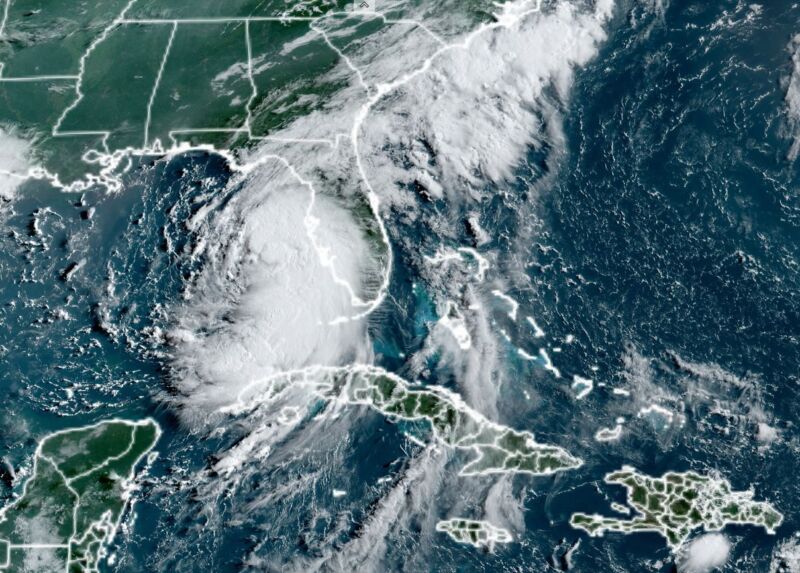Netflix, Amblin and Obama-Backed Higher Ground Win Heated Auction for New S.A. Cosby Book ‘King of Ashes’ (EXCLUSIVE)




Enlarge / Satellite image of Tropical Storm Debby on Sunday morning. (credit: NOAA)
As often happens during the month of July, the Atlantic tropics entered a lull after Hurricane Beryl struck Texas and short-lived Tropical Storm Chris moved into Mexico. But now, with African dust diminishing from the atmosphere and August well underway, the oceans have awoken.
Tropical Storm Debby formed this weekend, and according to forecasters with the National Hurricane Center, the system is likely to reach Category 1 hurricane status before making landfall along the coastal bend of western Florida on Monday.
As hurricanes go, this is not the most threatening storm the Sunshine State has seen in recent years. Yes, no one likes a hurricane, or the storm surge it brings. But Debby is likely to strike a relatively unpopulated area of Florida, venting much of its fury on preserves and wildlife areas. This won't be pleasant by any means, but as hurricanes go this one should be fairly manageable from a wind and surge standpoint.
Reissued with obsolete COVID-19 page links removed.
Reconsider travel to Burundi due to crime, health, and political violence. Some areas have increased risk. Read the entire Travel Advisory.
Do Not Travel to:
Country Summary: Violent crimes, such as assault, carjacking, home invasion, grenade attacks, and armed robbery, have been reported in Burundi. Criminals at times target foreigners and residents suspected of having large sums of cash. Local police lack the resources and training to respond effectively to crimes.
Medical services in Burundi fall well below U.S. standards, and there are no adequate trauma services in the country. Emergency medical and fire services are limited or non-existent in some areas of the country. Even relatively minor health problems may necessitate a medical evacuation at the traveler’s expense. Medical evacuation insurance valid for travel to Burundi is strongly recommended.
Although political unrest and instability in Burundi have diminished in recent years, the risk of potential violence remains. Police and military checkpoints are common and can restrict freedom of movement. Police have conducted weapon searches in the homes of private citizens. The borders may close without notice.
The U.S. government has limited ability to provide emergency services to U.S. citizens throughout Burundi. U.S. Embassy personnel are subject to restrictions when traveling in certain areas of Burundi and may be subject to other constraints as security conditions warrant. These restrictions include limitations on all travel outside Bujumbura Mairie during hours of darkness (typically 6:00 p.m. to 6:00 a.m.). The U.S. government may not be able to provide emergency services to U.S. citizens in the following areas: the provinces of Bubanza and Cibitoke and Kibira National Park (including the park’s southernmost part in Muramvya province)
Read the country information page for additional information on travel to Burundi.
If you decide to travel to Burundi:
The former Central Market located on Chaussee Prince Louis Rwagasore – Level 4: Do Not Travel
Violent crimes, such as grenade attacks and armed robbery, can occur.
The former Central Market located on Chaussee Prince Louis Rwagasore is off-limits to U.S. Embassy personnel at all times
Visit our website for Travel to High-Risk Areas.
Cibitoke and Bubanza provinces and Kibira National Park – Level 4: Do Not Travel
Armed actors exploit porous borders and forested areas between Burundi, Rwanda, and the Democratic Republic of the Congo for movement and activities. U.S. Embassy personnel are restricted from travel to the following areas without special permission: the provinces of Bubanza and Cibitoke and Kibira National Park (including the park’s southernmost part in Muramvya province).
Due to travel restrictions on U.S. Embassy personnel, the U.S. government may be unable to provide emergency services to U.S. citizens in these areas.
Visit our website for Travel to High-Risk Areas.